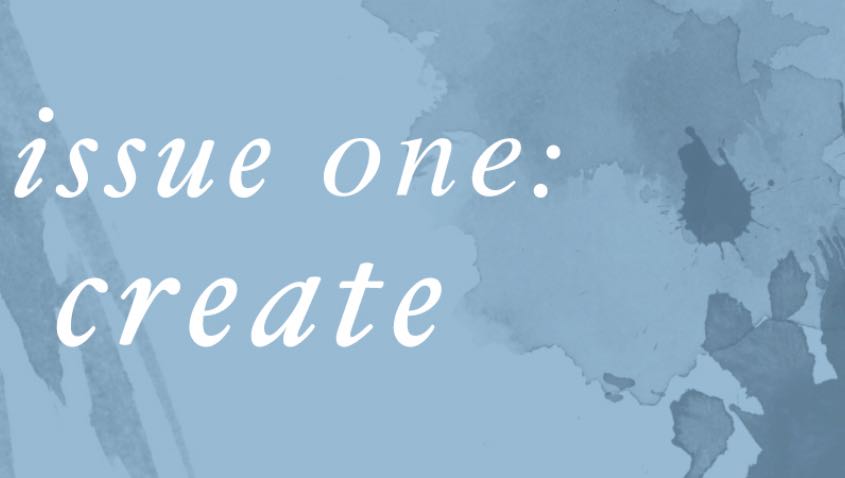Demos Journal set out to create something new: a community committed to deconstructing the key issues that define democracy today. In our debut issue, we wanted to highlight our commitment to the creative as a crucial part of political resistance through a theme that would motivate and engage others in a way that centres their concerns.
It is difficult to define what it means to create. The discomfort of not being able to pin it down is the starting point for many of the articles in this issue. For Maria Hynes, for instance, this points to precisely what creativity is – namely, “new ways of speaking, acting, thinking and being,” which challenge, provoke, and confront us precisely because they do not fit our pre-established definitions. After all, as one philosopher, Nicholas Kompridis puts it, “what makes the new new is that we can only say what’s new about it after we have recognised the difference it introduces in virtue of what we could previously think or do.”
Others see creativity as liberation from the strictures of traditional form. Lucienne Shenfield’s ‘A Different Kind of Wave’ combines a variety of forms – the short story, the memoir, the opinion piece – to create a unique structure of recurring, intersecting threads much like her beloved, evolving ocean. Likewise Hannah Lee’s ‘Create Thoughts’ is disarming in its spontaneous and sharp voice as it veers between crushing boredom and depth of insight, ultimately counselling us: “If you want to reimagine anything, look to the artists, and create something.”
There are, of course, those pieces represented here that are creative in the conventional sense: photography series, art, poetry and video animations. However, what is striking about these is that they work from domain of aesthetics to conceptualise politics in all its nuance, open-endedness and complexity. Kira Godoroja-Prieckaert’s ‘We Were Lucky,’ to take just one example, manages with remarkable restraint and economy to leave the viewer with an abiding sense of unease, while Elena McGannon’s ‘Red My Lips’ photo series captures those intimate moments where identity and solidarity are asserted.
In addition, the academic essays and opinion pieces that we curated for this edition link creativity with some of the enduring themes of democratic politics. Claire Gardner, for example, approaches the climate crisis from a refreshing angle, interrogating the kinds of political responses imagined by contemporary literature. Furthermore, Judy Kuo explores the problem with articulating difference in the struggles of identity politics, through Kendrick Lamar’s rap albums.
These voices gave us an opportunity to reflect on our own project of creation with Demos Journal. To consider these pieces together does not dissolve our vision into a chaos of diverging voices, but in fact embodies the very meaning of democracy as a space for contestation and dissent. This alternative vision takes us beyond a vote cast every election cycle or even a public sphere where we search rationally for consensus. It points to an alternative vision of democracy implicit in the emphasis we place on the demos, the ‘people’ of democracy. When sovereignty is invested in the multiple and divergent sites that constitute a people, it opens up a process of creatively contesting the possibilities of a new and radical political life. It is here, we are persuaded, that the potential for change emerges.
Creativity hints at the forms and limits of a new politics: one that tries to take the world not as it is, but as it could be; that explores alternatives and possibilities; that thinks of freedom as Hannah Arendt did as the “freedom to call something into being which did not exist before.” It is precisely such a creative politics that Demos Journal aims to foster by connecting different social justice causes and groups in our community, publishing critical and creative pieces side by side and attempting to bridge the gap between the ivory tower and everyday resistance.
Demos Journal is a project born from a space of collaboration between different activist groups in our local community. We found that in attempting to start a conversation together rather than working in isolation we could further our own social justice causes. It has grown from there into an eclectic group of editors, each with their own views, experiences and contributions, weaving our vision for this new platform together through numerous overtime-coffee dates.
Of all the things we discovered, embarking on a project inspired by the idea of demos, perhaps the most vital is that this, like democracy, is an ongoing process defined by the people and their many voices; something that can never be completed once and for all.
And for us, it is important that we leave this project open. This means nothing less than an openness to the demands of our community, an openness to the challenges of creating space that engages with the most marginalised voices; and, finally, an openness to celebrating and evolving with the incredible work of critique and creativity already underway in our community.

